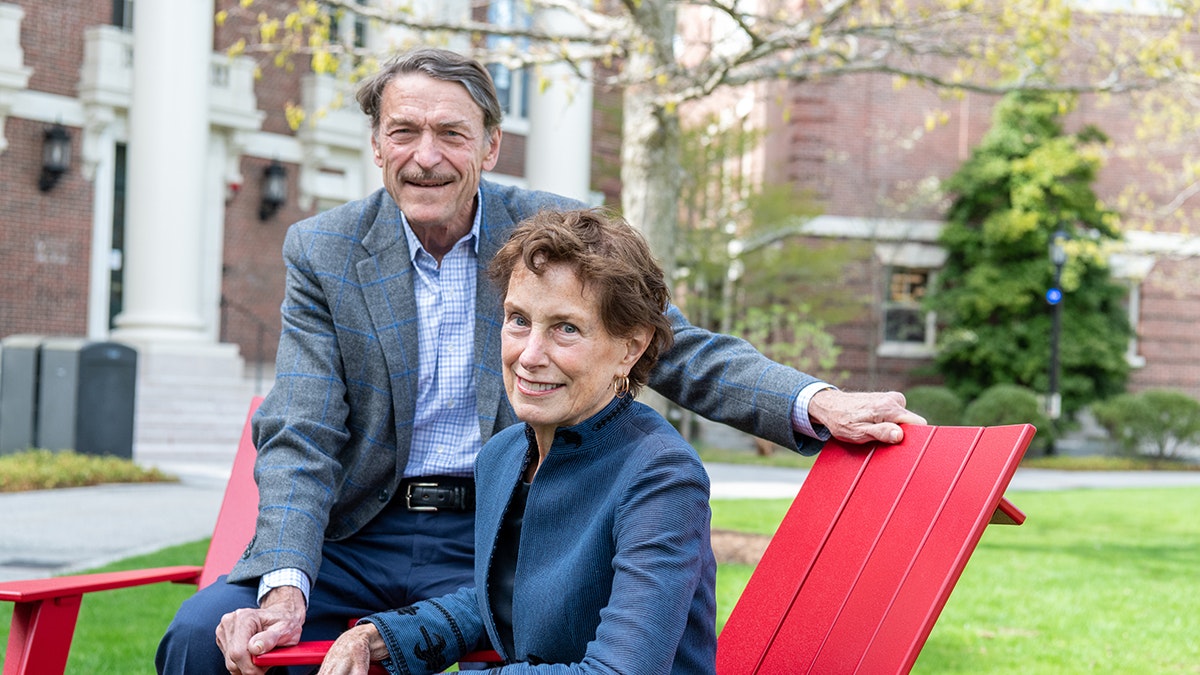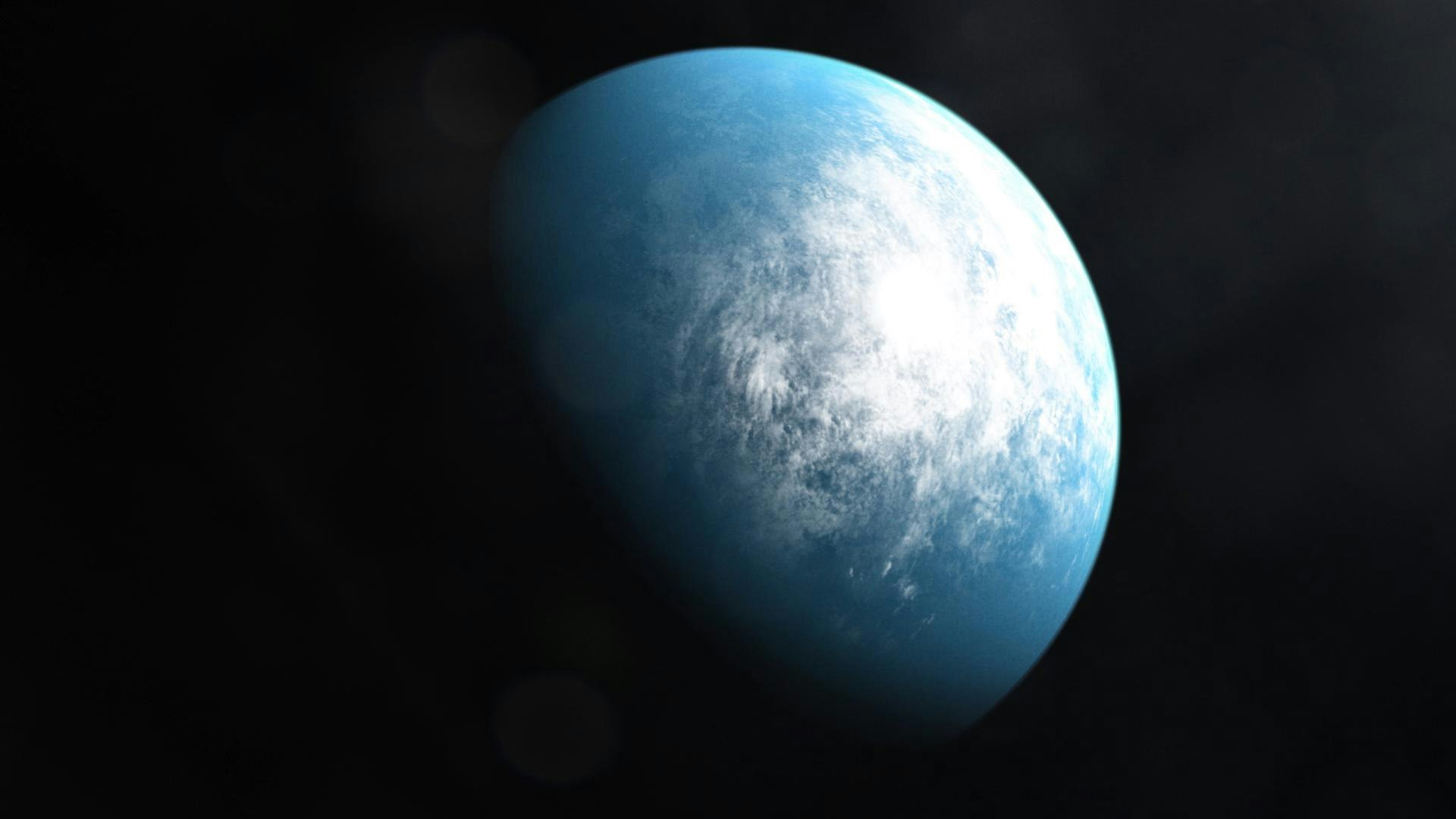Search for Scientific Knowledge—from Wayfinding to Exoplanets—Sparks New Giving

As alums, the Niemiecs have long felt a loyalty to Harvard and Radcliffe. But it was the Institute’s science programming that captured their curiosity—and inspired their support.
The search for other planets that can support life begins at home. At least, that’s been the experience of Melanie Mason Niemiec ’71, MBA ’75 and David W. Niemiec ’72, MBA ’74.
In 2015, the couple were hosting a dinner in their New York City home for prospective donors with the astrophysicist and then–Radcliffe fellow Mercedes López-Morales RI ’15, who is affiliated with the Center for Astrophysics | Harvard & Smithsonian, as a guest speaker. The Niemiecs, who had made their careers in finance and investments, were already generous supporters of Radcliffe. Listening to López-Morales, Melanie Niemiec recalled, cemented their commitment. Growing up in the Canary Islands, home of the Gran Telescopio Canarias, the world’s largest single-aperture optical telescope, López-Morales explained, she knew she wanted to be an astronomer early on. She then brought the Niemiecs’ other guests up to date on her work searching for and studying exoplanets—planets in other systems that might be suitable for life. “Now, who wouldn’t be interested in that?” laughed Melanie. “I just found it fascinating.”
Such encounters have been a highlight of Melanie Niemiec’s work with the Dean’s Advisory Council, which she joined in 2009, an experience she describes as “extremely rewarding.” They have also sparked the couple’s involvement in lifelong learning and continued interest in the sciences. Longstanding supporters of the sciences at Radcliffe, through both the Melanie Mason and David W. Niemiec Fund for Science and the Melanie Mason Niemiec ’71 Current-Use Fund for Science, the Niemiecs recently made a new gift commitment to name a faculty codirector of the sciences at the Institute. Radcliffe faculty directors—distinguished Harvard faculty members who are respected experts in their fields—shape the Institute’s innovative programming and foster a culture of open intellectual exchange across disciplines. As Institute leaders, they engage researchers, students, and the public and build collaborations across Harvard and around the world.
Although neither Melanie nor David has a background in science, such talks and symposia have introduced them to new worlds. Even before that talk on exoplanets, Melanie recalled, she attended a symposium on navigation. “They had people who were involved in neuroscience and anthropology, space science technology, and emergency management, all looking into the topic in a cross-disciplinary way: What it means to find your way,” she said. Such daylong events, recalled Melanie, “are just the among the most interesting things that Radcliffe does.”

Learning about the search for exoplanets—such as TOI 700 d, found 100 light-years away in the constellation Dorado—cemented the Niemiecs' commitment. Illustration by NASA
“Melanie and Dave saw the promise of the Institute’s scientific programming from the very beginning,” says Tomiko Brown-Nagin, dean of the Radcliffe Institute, the Daniel P.S. Paul Professor of Constitutional Law at Harvard Law School, and a professor of history in the Harvard Faculty of Arts and Sciences. “I am so grateful for their support, dedication to the Institute, and clear understanding of the critical role our faculty plays in advancing Radcliffe’s interdisciplinary mission.”
This latest gift was prompted by the couple’s 50th reunions, which they both celebrated in 2022, thanks to the pandemic-necessitated cancellation of Melanie’s reunion the previous year. “We spent 10 days in Cambridge going to these two reunions,” she said. So much time back on campus spurred the big questions: “What is it that we want to have as a legacy, and what do we want to support?”
Giving back came naturally. “I’ve always supported Radcliffe,” said Melanie. “I'm a 1971 graduate of Radcliffe College, and I was involved in fundraising for the school. And Dave and I, both having been scholarship students at Harvard and Radcliffe, also support scholarships for undergraduates.”
Back in their College days, neither was involved in the sciences. Both government concentrators, the couple met through the Harvard Crimson, where David served as the business manager and Melanie did some news reporting. With the elder of their two daughters, Elizabeth Street Niemiec, a 2004 alumna, they feel a loyalty to the larger university. But by supporting the Radcliffe Institute, David stressed, the couple believes they can make a bigger impact as well as focus in on their priorities. “You usually think of a university, and Harvard in particular, as having the purpose of teaching, of passing on knowledge. But of course, another big part is the creation of knowledge, of new ideas,” he said. “Radcliffe is devoted to giving the scholars time and resources to be able to pursue new ideas.”
Calling Radcliffe a necessary “convening space,” Melanie pointed out: “Radcliffe is a place where people from different fields come together to do interdisciplinary work, which seems in today’s world to be necessary for problem solving.
“We’re looking to support the idea of creating knowledge and coming up with solutions to problems in the world,” she said. “It’s important that we continue to have these science directors in order to organize these programs. And so we want to be supporters of the continuation of science at Radcliffe.”
The current faculty codirectors agree. “Radcliffe has long been a pioneer in interdisciplinary research and the advancement of women in higher education. In an era where misinformation threatens to overshadow science and evidence in public discourse, it is crucial to foster thought leaders from diverse backgrounds who can champion science and the scientific method,” said Immaculata De Vivo, codirector of the Institute science program and a professor of medicine at Harvard Medical School and of epidemiology at the Harvard T.H. Chan School of Public Health. “The generous donation from the Niemiecs will enable our institution to recruit and retain faculty codirectors dedicated to upholding Radcliffe’s mission of promoting scientific thinking in academia and the broader society.”
Such a gift “enables the valuable work we do to bring a wide range of science programming to Radcliffe and its broad community,” added Edo Berger, codirector of the Institute’s science program and a professor of astronomy. That programming, he explained, ranges “from public symposia and lectures to focused seminars, and spanning topics as critical as climate change, personal and global health, and artificial intelligence.”
“Science seems to us to be the academic discipline that can have the greatest positive impact on humanity,” said Melanie. “The biggest issues of our times—like climate change, disease, and the future of technology—all require scientific solutions. We hope and believe that Radcliffe’s work on the frontiers of science can make great strides in solving these mammoth worldwide problems. It’s very exciting to support an organization with that kind of potential.”
“Melanie and Dave recognized the promise of the Institute’s scientific programming from the start,” says Tomiko Brown-Nagin, dean of the Radcliffe Institute. “I am so grateful for their tradition of support and for their astute understanding of the critical role our faculty directors play in advancing Radcliffe’s mission.”
Clea Simon '83 is a novelist whose most recent title is Hold Me Down.







